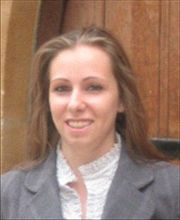Tutor HuntResources Law Resources
Civil Advocacy
Closing Speech
Date : 17/07/2012
Author Information

Uploaded by : Samantha
Uploaded on : 17/07/2012
Subject : Law
Sir, as you are no doubt aware, the burden of proof is on the Claimant to prove that the Defendant was negligent in this case, and the standard of proof is more likely than not. In my speech, I will be seeking to persuade you that you cannot be sure, on the balance of probabilities, that the Defendant was negligent in this case. Indeed, the Second Defendant counterclaims against the Claimant for his negligence.
I will now consider the first issue, namely whether Mr Bamford attempted to turn right into London Road when Mr Harrison's car was approaching. You have heard from Ms Masters for the Claimant, and Mr Bamford and Mr Groves for the Defendant. This is a case where the evidence is one person's word against another, and it is for you to judge whose evidence you believe.
The Prosecution's case, based solely on the evidence of Ms Masters, is that Mr Bamford had not stopped at the junction before London Road; he attempted to turn and in doing so turned straight into the path of Mr Harrison.
Mr Bamford, however, made it very clear that when he positioned the tanker in the junction, he came to a halt. This is because Mr Bamford had by this point noticed Mr Harrison's car driving towards him at around 35-40 mph and he did not appear to be slowing down.
Mr Groves, although unable to remember all the details, specifically recalled that the tanker had come to a halt in the junction, and at that point saw Mr Harrison careering towards the tanker immediately before colliding with it.
It is submitted that Ms Masters is an honest but mistaken witness. Sir, may you please turn to the sketch plan at B1. You will recall that Ms Masters told us she was standing outside the post-office. That she was facing east, towards the rising sun on this bright spring morning, a far distance from Mr Harrison's Peugeot. The bright sun was in her eyes and she was unable to how Mr Harrison was driving. Indeed, I submit that Ms Masters was unable to make any assessment as to the cause of the accident until after she approached the scene and saw the two drivers.
You heard in cross-examination that Ms Masters was extremely shocked at the state of Mr Harrison, bleeding and unconscious, with substantial damage to his "little" car. Ms Masters told us that she couldn't believe the extent of his injuries compared to Mr Bamford who, apart from being in shock, was fine. I submit that Ms Masters, upon seeing the state of the two drivers and their vehicles, unconsciously attributed all of the blame of the accident to Mr Bamford and his "large tanker".
Ms Masters has been unable to describe Mr Harrison's driving, and it is submitted that standing behind the tanker, with the sun directly in her eyes, interfering with her view, Ms Masters was simply unable to tell whether the tanker was stationary or turning right as Mr Harrison's car collided with it. Ms Masters, unintentionally, has made this assumption after seeing the effect of the collision.
Mr Harrison, as you have heard, does not remember the collision at all, and therefore it is submitted that the only reliable evidence as to the first issue, what the tanker was doing when Mr Harrison collided with it, comes from Mr Bamford and Mr Groves. This is that the tanker was stationary when Mr Harrison collided with it.
I will now move on to consider the second issue, namely the manner of Mr Harrison's driving. Both defendants deny liability and negligence of the First Defendant in causing the accident. The Second Defendant also counterclaims against the Claimant for his negligence in causing the accident. Neither Mr Harrison nor Ms Masters are able to provide any descri ption of Mr Harrison's driving up to the collision.
As you heard in cross-examination, Mr Harrison seems to have been running late for his MOT appointment. He left his house at 7.50 to head to his MOT appointment. He told us it would take about 30 minutes to get to the garage and his appointment was at 8.15. Mr Harrison has told us that the point of the collision was around a 20 minute drive from the garage.
Therefore I submit that at 8 am, when the accident occurred, Mr Harrison was rushing and not paying due care and attention. We have heard from Ms Masters and Mr Bamford that High Street was clear at the time of the collision, and so Mr Harrison was likely
This resource was uploaded by: Samantha
